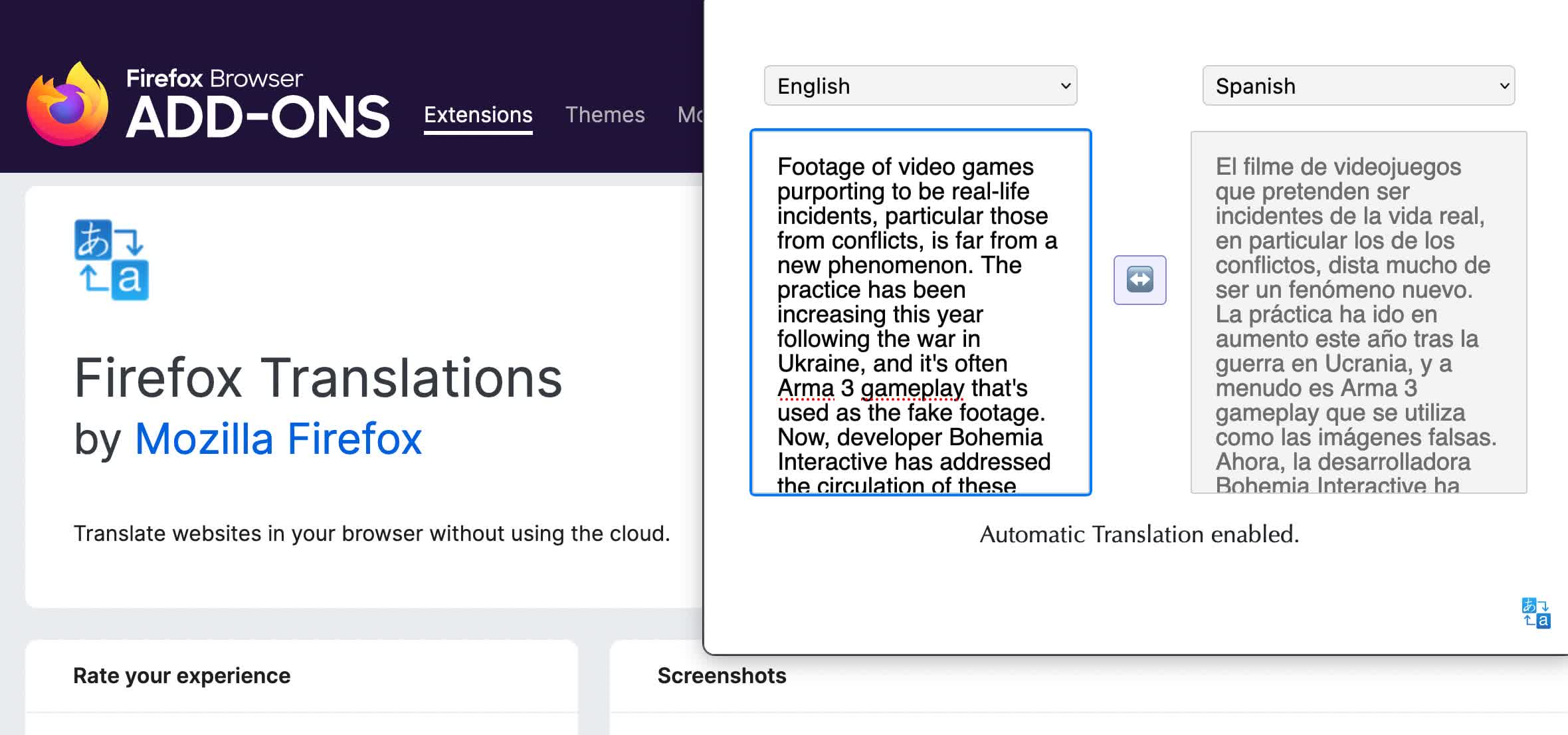In context: Most translation services rely on remote servers and cloud-hosted AI frameworks to work their magic, while turning one language into another. Firefox Translations goes the opposite way, offering something "cloud-free" to privacy-aware netizens.

Even though Firefox isn't as popular as it once was, you can still count on the fact that Mozilla will do something different compared to the ubiquitous Google Chrome.
Case in point: the open source foundation is currently working on a new translation tool, a Firefox extension designed to respect users privacy aptly named Firefox Translations.
Unlike Google Translate, Bing Microsoft Translator, DeepL Translate and other online services of that kind, Firefox Translations algorithms work completely offline. In other words, translations are done locally on the client-side, Mozilla explains, using the system CPU (SSE4.1 extension support is required for the addon to work properly) to ensure that "the text being translated does not leave your machine."
Firefox Translations currently support the following 10 languages in "production" mode: Spanish, Estonian, English, German, Czech, Bulgarian, Portuguese, Italian, French, Polish.
Development is still ongoing to extend support to Russian, Persian (Farsi), Icelandic, Norwegian Nynorsk, Norwegian Bokmål, Ukrainian, and Dutch.
Mozilla is working with The Bergamot Project Consortium – whose work is focused on "machine translation done locally in your browser" – and several European universities to develop and further improve Firefox Translations. The project has received funding from the European Union's Horizon 2020 research and innovation program, which should grant enough money to eventually get a decent offline alternative to Google Translate.
Mozilla recently released a new version of Firefox Translations (1.2), bringing some flexibility to the tool with free text translation support. Previous versions of Firefox Translations could only translate full web pages at once, while choosing the system language as the sole target for the translation; version 1.2 will let users paste any custom text in a new dedicated translation UI, selecting a different target language as well. An option to select text on a web page for a direct translation is still missing though.
Firefox Translations is growing and improving at a steady pace, while the EU funding should cover development efforts from Mozilla and avoid the grim future of Firefox OS and other recent offers from the organization.
https://www.techspot.com/news/96798-firefox-avoids-cloud-privacy-friendly-translation-service.html
